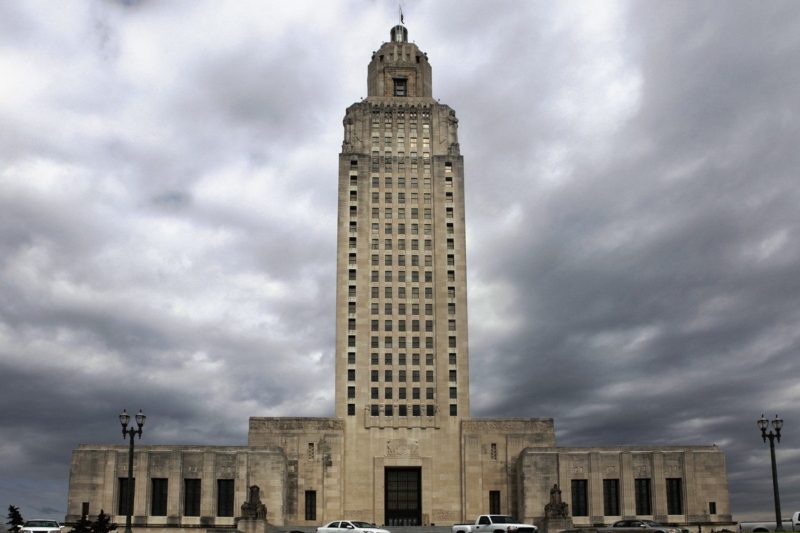Louisiana GOP Focuses on Anti-Choice Measures Amid Budget Crisis
The proposals include a bill to ban the donation of fetal tissue and a measure to extended the state’s forced waiting period from 24 hours to 72 hours for a pregnant person seeking abortion care.

Louisiana Republicans found the time to pre-file an assortment of anti-choice bills for the upcoming regular legislative session in the midst of a special legislative session focused on the state’s budget crisis.
The GOP proposals include a bill to ban the donation of fetal tissue and a measure to extended the state’s forced waiting period for a person seeking abortion care from 24 hours to 72 hours.
State lawmakers have until Wednesday at 6 p.m. to determine a solution for the state’s $940 million budget crisis. In the meantime, ten bills to restrict reproductive rights have been pre-filed ahead of the state’s regular legislative session, which begins March 14.
“Clearly legislators will continue to attack women’s access to abortion,” Amy Irvin, executive director of the New Orleans Abortion Fund, told Rewire. “Given the emergency of the budget crisis and the potential impact on women and families in Louisiana, it is appalling that legislators have spent their time drafting bills to further limit access to safe and legal reproductive health care.”
Among the pre-filed bills is HB 386, sponsored by Rep. Frank Hoffmann (R-West Monroe). State law in Louisiana already mandates that prior to terminating a pregnancy, a pregnant person must be given written materials published by the state, which list agencies offering “alternatives to abortion.” HB 386 extends the time a patient must wait between receiving those materials and getting abortion care from 24 hours to 72.
Louisiana would join five other states that force pregnant people to wait three days to receive abortion care. Missouri, North Carolina, Oklahoma, South Dakota, and Utah all have 72-hour waiting periods.
“It is medically unnecessary to wait 72 hours, just as it is to wait 24 hours,” Irvin said.
Medical research charges that waiting periods are detrimental to a pregnant person’s health. At least one study concluded that any delay in a pregnant person terminating a pregnancy increases the health risk and cost of abortion care.
A pregnant person should be provided with abortion care as soon as possible once the decision is made to terminate a pregnancy, according to recommendations by the World Health Organization.
The bill includes an exception for pregnant people who certify in writing that they live “one hundred fifty miles or more” from the nearest licensed clinic that provides abortion services. They would be forced to comply with a 24-hour waiting period, not a 72-hour waiting period.
Pregnant people would continue to be exempt from the mandatory waiting period and forced counseling in the case of a “medical emergency.” Under state law, a medical emergency is defined as when the “continuation of the pregnancy poses an immediate threat and grave risk to the life or permanent physical health of the pregnant woman.”
There have been four bills pre-filed that would regulate the handling of fetal tissue after an abortion procedure. These include HB 618, sponsored by Rep. Tom Willmott (R-Kenner); HB 672, sponsored by Rep. Paula Davis (R-Baton Rouge); HB 815, sponsored by Rep. Julie Stokes (R-Kenner); and SB 33, sponsored by Sen. Ryan Gatti (R-Bossier City).
Legislation targeting the use of fetal tissue has appeared in many state legislatures controlled by Republicans.
These bills stem from discredited allegations made by the anti-choice front group known as the Center for Medical Progress (CMP), which began publishing deceptively edited and surreptitiously recorded videos in 2015. CMP’s smear campaign charged that Planned Parenthood violated laws governing the sale of fetal tissue. GOP-led investigations nationwide have turned up no wrongdoing on the part of Planned Parenthood, and CMP’s leaders have been indicted on felony charges related to the smear videos.
Former Gov. Bobby Jindal’s (R) administration used the CMP videos as justification to strip Medicaid payments from Planned Parenthood health-care clinics in Louisiana. A federal court blocked Jindal’s efforts.
Rep. Katrina Jackson (D-Monroe), who in 2014 authored the state’s Texas-style admitting privileges law, has sponsored another piece of legislation that targets clinics providing abortion services. HB 488 would require physicians offering abortion care to be “board-certified or board-eligible” in obstetrics and gynecology or family medicine. The American College of Obstetricians and Gynecologists opposes requirements like these; it has noted that “clinicians in many medical specialties can provide safe abortion services.”
HB 73, sponsored by Rep. Jerome Richard (I-Thibodaux), would join a growing number of bills introduced in state legislatures designed to criminalize pregnant people. The bill would charge pregnant people with “second degree cruelty to juveniles” if they are found to have used a controlled substance while pregnant.
A handful of bills have been pre-filed that would ban organizations that provide abortion services or contract with abortion providers from receiving state funding. This includes HB 606, sponsored by Hoffmann; HB 889, sponsored by Rep. Alan Seabaugh (R-Shreveport); and SB 264, sponsored by Sen. Fred Mills, Jr (R-St. Martinville).
Irvin called the filing of so many anti-choice bills a “race to the bottom,” especially in light of the Supreme Court blocking the state from enforcing a law that would leave the state with only one abortion provider. A federal district court judge has blocked efforts by Louisiana GOP legislators to cut off funding to Planned Parenthood health-care facilities.
The anti-choice bills have been referred to various house and senate committees, were they await further action. Republicans hold a 25-14 advantage in the state senate and a 61-42 majority in the house.
